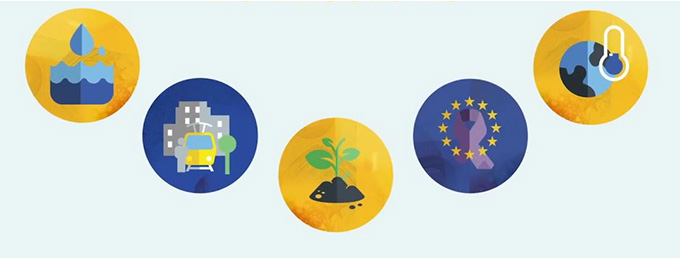Data will play a crucial role for the success of Horizon Europe missions. Examples from the soil and cancer mission show first advances and potential challenges.
Moonshot-like Missions will be a new feature in Horizon Europe, the next Research and Innovation Framework Programme of the European Union. The five missions proposed for Horizon Europe will go far beyond research and innovation, and will cover the areas of cancer, adaptation to climate change, carbon-neutral and smart cities, healthy oceans seas coastal and inland waters and soil health and food. Dedicated mission boards elaborated recommendations for each mission, and handed them to the European Commission at the R&I Days in September.
Next month will see the first steps towards the foundation of the soil mission, the launch of the Joint Research Centre’s (JRC) EU Soil Observatory, a new programme for monitoring European soils. The observatory will bring together information from the EU’s Copernicus earth observation satellites and field assessments from the European Soil Centre, making a single database on the health of soils possible. The soil mission’s overall goal is to make 75 per cent of EU soils healthy by 2030; a number we are far off today, and which can only be reached with standardised reporting on progress. The availability of enough data for this ambitious goal also depends on Member States, who will have to step up their own reporting and harmonise it with others. To facilitate this harmonisation, the mission board has proposed eight simple indicators for measuring soil health. Remote sensing systems, such as those provided through Copernicus, can help measure indicators including vegetation, which covers soil for protection, or even detect which kinds of crops are grown where. The combined field and satellite data will help the soil mission to identify and map soil needs and structures.
Another mission heavily dependent on data is the cancer mission. It aims to save three million lives by 2030 by advancing cancer prevention, diagnostics, treatments, and improving the quality of life of cancer patients and survivors. To reach this goal, the recommendations of the mission board include for example setting up a European cancer patient digital centre, where patients and survivors can voluntarily share their data for research, as well as developing long-term care plans. Collecting and sharing data is also key to applying artificial intelligence and machine learning tools to research, and enabling the digital transformation in health care. However, members of the cancer mission board claim that data protection rules such as the General Data Protection Regulation (GDPR) in the EU are making it difficult to share anonymised patient data and may thus block the way for cancer research in Europe. In a pledge to the European Parliament (EP), the mission board members call for building a way, in which data can be shorn independently of its geographical and socioeconomic origins. This should allow for the identification of the most appropriate and individual treatment for all citizens independently of where they live. The Chair of the EP’s Beating Cancer Committee, Bartosz Arlukowicz confirmed that creating a common European Data Space as a single market for data is one of their priorities.
In October, all five missions received political validation from the European Commission. Next steps will now include the integration of rough descriptions of the mission into the Horizon Europe Strategic Plan and the start of the missions with a preparatory phase in the course of 2021. During this launch phase, missions will receive a small budget from Horizon Europe for first activities and will have to prepare a more detailed implementation plan to submit to the European Commission.

